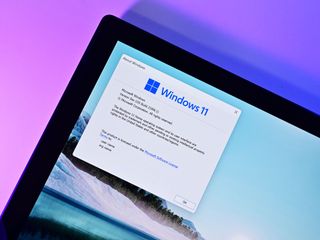
A 9-inch display and 64-bit processor is the minimum required to run Windows 11.
When you purchase through links on our site, we may earn an affiliate commission. Here’s how it works.

Microsoft has officially announced Windows 11, which means we now know what it takes to run Microsoft's next OS. Windows 11 ships this fall, and has a new set of minimum system requirements that users must have in order to successfully run Windows 11.
The biggest changes to Windows' system requirements with Windows 11 is that the OS is now only available on 64-bit processors. Microsoft is not releasing a 32-bit version of the OS, although 32-bit apps will continue to work just fine.
Windows 11 also requires a display size of at least 9-inches, meaning we won't be seeing any phones or mini 8-inch tablets with Windows 11. Microsoft has also increased the required drive storage to 64GB, up from 32GB with Windows 10. The same goes for RAM, being bumped from 2GB to 4GB.
Microsoft is also requiring UEFI, Secure Boot, and TPM 2.0 support for Windows 11. If your PC doesn't have any of these, Microsoft doesn't guarantee that Windows 11 will run correctly.
These minimum specs will be required by OEMs to hit on any hardware they intend to ship with Windows 11. This means entry-level PCs will now need 64GB of storage and 4GB RAM at minimum if they include Windows 11 out of box.
What are your thoughts on Windows 11's new system requirements? Let us know in the comments. Be sure to check out the rest of our Windows 11 coverage as well.
All the latest news, reviews, and guides for Windows and Xbox diehards.
By submitting your information you agree to the Terms & Conditions and Privacy Policy and are aged 16 or over.